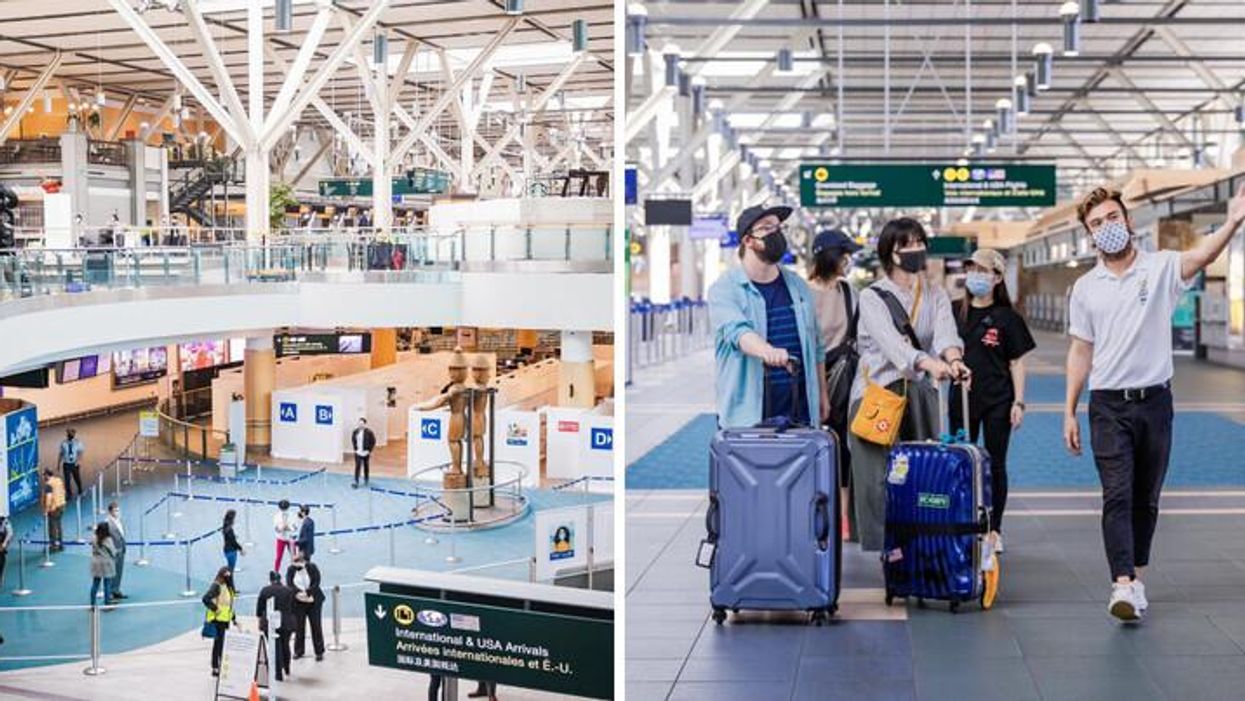Canada's Travel Restrictions Just Changed Once Again & Here's Everything You Need To Know
Canadians must now be fully vaccinated in order to travel.👇✈️
As of Saturday, October 30, Canada's travel restrictions have had yet another major update.
In order to travel on planes, cruises and some trains in Canada, passengers must now be fully vaccinated against COVID-19. Those who are not yet fully vaccinated will be able to show a valid COVID-19 molecular test, but only until November 30.
Here's everything you need to know:
Travellers must be fully vaccinated
In August, the federal government in Canada announced plans to implement a vaccine mandate for some forms of travel, including on planes, cruises and trains.
It applies to passengers aged 12 and over, as well as employees of the federally regulated air, rail and marine transportation sectors.
It comes into effect from October 30. From then, all travellers departing from Canadian airports must be fully vaccinated in order to board their flight.
The same will apply to passengers on VIA Rail and Rocky Mountaineer trains, as well as people on non-essential passenger vessels on voyages of 24 hours or more, such as cruise ships.
Is testing an option instead?
Until November 29, 2021, Canadians will be able to show a valid COVID-19 molecular test within 72 hours of travel as an alternative to providing proof of full vaccination. The feds say this will allow travellers enough time to become fully vaccinated.
However, as of November 30, this will not be an option for the majority of Canadians. Officials say there will be "very limited exceptions to address specific situations such as emergency travel, and those medically unable to be vaccinated."
What enforcement measures will there be?
Transport Canada will oversee compliance by "means of inspections and enforcement tools," including financial penalties.
Unvaccinated travellers who refuse to comply or falsify information could face fines of up to $5,000 per violation.
In the air sector, travellers or employees could be fined up to $5,000 per violation and operators could be fined up to $25,000 per violation.
Operators in the rail and marine sectors could be subjected to compliance actions of up to $250,000 per violation, per day.
What else?
Fully vaccinated travellers entering Canada are permitted to skip restrictions like the on-arrival COVID-19 test, the day-eight test and hotel quarantine.
However, regardless of whether an individual enters Canada via plane or car, they must continue to show proof of a negative COVID-19 molecular test within 72 hours before arriving.
By November 30, 2021, residents of every province and territory will be able to access the standardized version of Canada's vaccine passport for travel.
Before you get going, check out our Responsible Travel Guide so you can be informed, be safe, be smart, and most of all, be respectful on your adventure.
- Here's How To Download Canada's Vaccine Passport For Travel In ... ›
- Here's How To Get Canada's Vaccine Passport & Use It When You ... ›
- Canada Has New Vaccine Rules For Domestic Travel & Here's ... ›
- 7 Countries You Can Travel To Around The World Where The Canadian Dollar Goes A Long Way - Narcity ›
- Here's How To Download Canada's Vaccine Passport For Travel In Every Province & Territory - Narcity ›
